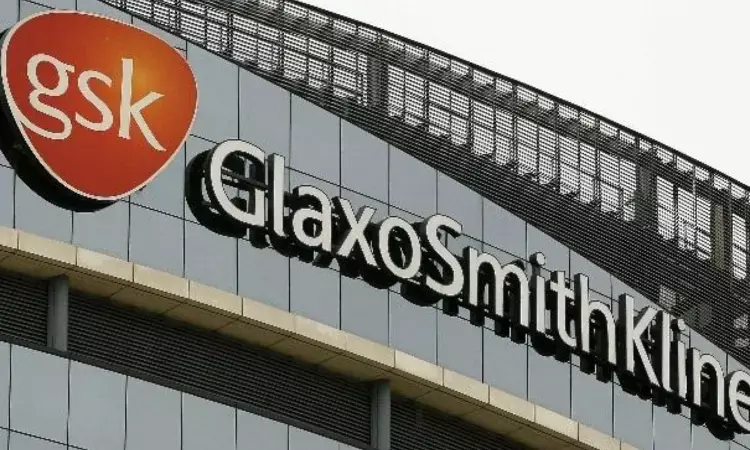- Home
- Medical news & Guidelines
- Anesthesiology
- Cardiology and CTVS
- Critical Care
- Dentistry
- Dermatology
- Diabetes and Endocrinology
- ENT
- Gastroenterology
- Medicine
- Nephrology
- Neurology
- Obstretics-Gynaecology
- Oncology
- Ophthalmology
- Orthopaedics
- Pediatrics-Neonatology
- Psychiatry
- Pulmonology
- Radiology
- Surgery
- Urology
- Laboratory Medicine
- Diet
- Nursing
- Paramedical
- Physiotherapy
- Health news
- Fact Check
- Bone Health Fact Check
- Brain Health Fact Check
- Cancer Related Fact Check
- Child Care Fact Check
- Dental and oral health fact check
- Diabetes and metabolic health fact check
- Diet and Nutrition Fact Check
- Eye and ENT Care Fact Check
- Fitness fact check
- Gut health fact check
- Heart health fact check
- Kidney health fact check
- Medical education fact check
- Men's health fact check
- Respiratory fact check
- Skin and hair care fact check
- Vaccine and Immunization fact check
- Women's health fact check
- AYUSH
- State News
- Andaman and Nicobar Islands
- Andhra Pradesh
- Arunachal Pradesh
- Assam
- Bihar
- Chandigarh
- Chattisgarh
- Dadra and Nagar Haveli
- Daman and Diu
- Delhi
- Goa
- Gujarat
- Haryana
- Himachal Pradesh
- Jammu & Kashmir
- Jharkhand
- Karnataka
- Kerala
- Ladakh
- Lakshadweep
- Madhya Pradesh
- Maharashtra
- Manipur
- Meghalaya
- Mizoram
- Nagaland
- Odisha
- Puducherry
- Punjab
- Rajasthan
- Sikkim
- Tamil Nadu
- Telangana
- Tripura
- Uttar Pradesh
- Uttrakhand
- West Bengal
- Medical Education
- Industry
GSK gets CDSCO panel nod to market Mepolizumab for two rare disease indications

New Delhi: Pharmaceutical major, GSK has got a go-head from the Subject Expert Committee (SEC) of the Central Drug Standard Control Organization (CDSCO) to market Mepolizumab Solution for Injection for two rare disease indications.
This came in the wake of the proposal presented by the drug-maker GSK for Mepolizumab Solution for Injection for the addition of two indications namely
(a) Eosinophilic granulomatosis with polyangiitis (EGPA) and
(b) Hypereosinophilic syndrome (HES).
Eosinophilic granulomatosis with polyangiitis (EGPA) is a disease caused by inflammation (swelling) that occurs in certain types of cells in blood or tissues. Everyone who gets EGPA has a history of asthma and/or allergies. It can affect many of body's organs.
Hypereosinophilic syndrome (HES) is a group of blood disorders that occur when one is having high numbers of eosinophils, white blood cells that play an important role in immune system. Over time, the excess eosinophils enter various tissues, eventually damaging organs.
Mepolizumab injection belongs to a class of medications called monoclonal antibodies. It is a fully-humanized monoclonal IgG1 kappa anti-IL-5 antibody used in conjunction with other therapies. It works by blocking the action of substances in the body that causes the symptoms of asthma.
It is used along with other medications to prevent wheezing, difficulty breathing, chest tightness, and coughing caused by asthma in certain children 6 years of age and older and adults whose asthma is not controlled with their current asthma medication.
This injection is also indicated along with other medications to treat chronic rhinosinusitis with nasal polyps (ongoing runny nose, sinus swelling, or nasal congestion, with or without a reduced sense of smell or pain and pressure in the face) in adults whose symptoms are not controlled with other medications.
Mepolizumab injection comes as a prefilled syringe, a prefilled autoinjector, or as a powder to be mixed with water and injected subcutaneously (just under the skin). It is usually given once every 4 weeks. It is not used to treat a sudden attack of asthma symptoms.
At recent SEC meeting for pulmonary, the committee extensively evaluated the proposal presented by drug-maker GSK for pharma major GSK presented the proposal for Mepolizumab Solution for Injection for two indications: Eosinophilic granulomatosis with polyangiitis (EGPA) and Hypereosinophilic syndrome (HES).
In addition, the committee noted that the proposed indications are rare disease indications and are approved in USA, Europe, etc.
After detailed deliberation, the committee recommended for grant of permission to market the drug for the aforesaid indications.
Doctor of Pharmacy
Dr. Divya Colin, a Doctor of Pharmacy Graduate with extensive experience in clinical and hospital settings and confidently equipped with diagnostic and therapeutic skills. She also has spread out exposure to Oncology Departments in Mysore Medical College and Research Institute as Oncology Pharmacist. Currently she is building a career in clinical research and clinical data management. She has been a part of Medical Dialogue since January 2022.


